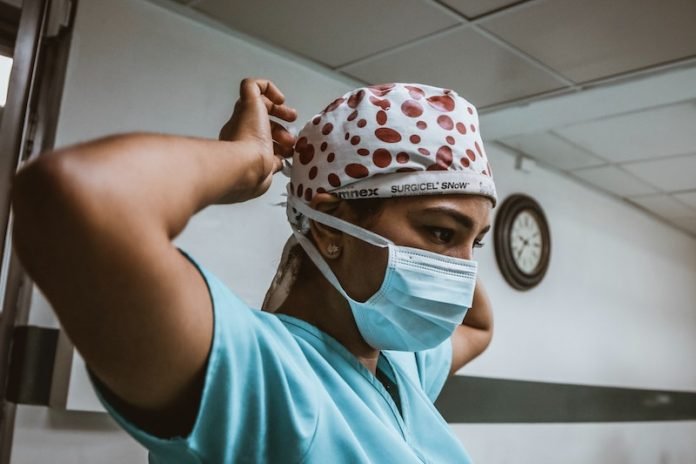
In a new study, researchers found that healthcare workers are 7 times as likely to have severe COVID-19 infection as those with other types of ‘non-essential’ jobs.
And those with jobs in the social care and transport sectors are twice as likely to do so.
The findings emphasize the need to ensure that essential (key) workers are adequately protected against the infection.
The research was conducted by a team at the University of Glasgow.
Few studies have looked at the differences in the risk of developing severe COVID-19 infection between different groups of workers.
While it’s known that those working in healthcare roles are at heightened risk, it’s not clear what the risks might be for those working in other sectors.
The researchers therefore compared the risk of developing severe COVID-19 infection in essential and non-essential workers.
They used data from the UK Biobank study (2006-10), COVID-19 test results from Public Health England, and recorded deaths for the period 16 March to 26 July 2020.
The UK Biobank is a long-term study tracking the factors potentially influencing the development of disease in around half a million middle and older age adults.
Severe infection was defined as a positive test result for SARS-CoV-2, the virus responsible for COVID-19, while in hospital, or death attributable to the virus.
The study included 120,075 employees aged 49-64. Of these, 35,127 (29%) were classified as essential workers: healthcare (9%); social care and education (11%); ‘other’ to include police and those working in transport and food preparation (9%)
The team found that compared with non-essential workers, those working in healthcare roles were more than 7 times as likely to have a severe infection.
And those working in social care and in education were 84% as likely to do so; while ‘other’ essential workers had a 60% higher risk of developing severe COVID-19.
When the researchers refined the employment categories further, it emerged that medical support staff was nearly 9 times as likely to develop the severe disease; those in social care almost 2.5 times as likely to do so; while transport workers were twice as likely to do so.
These findings reinforce the need for adequate health and safety arrangements and the provision of personal protective equipment for essential workers, especially in the health and social care sectors.
The health and wellbeing of essential workers is critical to limiting the spread and managing the burden of global pandemics.
One author of the study is Miriam Mutambudzi.
The study is published in Occupational & Environmental Medicine.
Copyright © 2020 Knowridge Science Report. All rights reserved.



